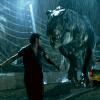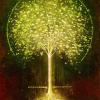Search the Community
Showing results for 'Dream'.
Found 7,591 results
-
The person who is truly ignorant about what samsara is, that is you and not me for you can't even understand the need to evolve away from this animalistic reality of eating, defecating, breeding and slaving away on this planet. You don't even know your own ego had trapped you and kept you ignorant and you dare lecture me about ego and desires? LOL what a joke! I have gone 72 days in without ejaculation and the last time I ejaculated was in a dream. Masturbation? Haven't done that for more two years. How long can YOU go on without sex? Go learn from Maha Vajra. He might teach you how to indulge in your desires more and the two of you might even enjoy masturbating each other.
-
Thanks MPG, good suggestions. I've watched Wims videos in the past, I wonder if there has been examples of rapid healing not related to cold or the tummo, or if rapid healing of wounds and sickness is part of the tummo attainment. Yesterday I fell into a reverie lucid dream meditation state where I was moving qi in my body in a more enhanced way than I was able to in the past, and actually healed myself mentally in that state. In fact the interesting part was the dream body was also the physical (qi body), where normally the dream body is quite seperate or just some mental construct that seems physical. Perhaps the enhanced ability was caused by the necessity of the accident. I do have my own teacher and lineage but I'm sure Spring Forest is good. For the discussion of White wolf and letting Buddhas into your body, I remember a time when I was concerned about this. It is similar to allowing Jesus into your heart, etc, or some other deity. Most of this type of meditation is to build an idea of an enlightened or perfected person, deity in your mental space so that you have some kind of reference to go towards. You dont need to have the buddha move inside you at all, you can have him outside sitting nearby, etc. If your mind tasked with feeling the traits of the buddha, that buddha is inside your mind already. No need to take it so literally, but you can if you want, because its easier to build a construct in your mind when you have some stated traits and facts. But really, you are trying in this type of meditation to feel the enlightened state, dharmakaya, the emptiness "body" of these beings. If you were to make an image of yourself as enlightened or a bodiless being in a higher plane of existence, and since we all have memories or access to that type of feeling somewhere, then you dont need a Buddha. I find using Buddha work better because they are free from all the thoughts and feelings of our present unenlightened selves that might bog a person down when trying to form a good model.
-

Recently I got to speak with an enlightened master and ask what enlightenment is.
Fū Yue replied to Thunder_Gooch's topic in Buddhist Discussion
I don't believe. I know that, at this very moment, there is an awareness of a full spectrum of 'light', whatever that is, congealing into an 'essence' that suggests something we collectively label a word called humanity. I see that all of it is inseparable. Everything after that is hearsay. A concept such as 'existence' or 'non-existence' has no reality. That's just an assumption. Make-believe. Right here and now there is a consciousness that is aware of itself. Everything else is a symbol of that ancient knowing. No screen, no projector, just a space with no beginning or end - clear all the way through, a brilliant display that unfolds into ever more bountiful freedom. Man is a symbol. All this world is a symbol, all of the phenomena signposts pointing to a jewel within a lotus. I can't tell you what it symbolizes because you are it. I can't show you the truth because you are currently in the process of knowing that truth right down to the core. It's easy for a dream to dream of itself when every single thing that can ever be conceived of is a quirky self-reference to it's own nature. -

Recently I got to speak with an enlightened master and ask what enlightenment is.
forum_jedi replied to Thunder_Gooch's topic in Buddhist Discussion
Do you believe that matter exists or is there just light playing on a screen as Yogananda describes? How did I become conscious of being human if I am not human or my Self was not given to a human body? How could non-existence be aware of its non-existence? If non-existence has a Self capable of concupiousness, wouldn't it cease being non-existent? If this is "a living Aesop fable," who is dreaming this exchange? You or I, or is it one of the other posters, or all of us? If more than one, how are we having the same dream? -

Are all the contents of awareness intentional?
goldisheavy replied to goldisheavy's topic in General Discussion
Intent, on the whole, doesn't arise or cease. Rather intent changes its character. People naively split up or delineate these changes into separate individual intentions. If we then analyze these fragments of intent, of course they appear to arise and to cease. It's only natural. But if you heal the delineations, the fact that intent is there and changes is still real. In other words, experience is always selective. At any one time you experience a fraction of all possible experience. There is no way to experience everything that could be experienced at once. This lively flowing selectivity of experience is a reflection of intent. Conditioning is never able to fully guide intent. There is always at least a tiny fragment of intent that's liberated from all conditions. When one's mind is ossified by habitual beliefs, then it seems like there is very little power left over to intent. Some people even think there is no power at all that's left over. They think all the power of change resides in the patterns themselves, and none of that power is available to one's person. Let's look at a relatively very hardened experience, mine. I am surrounded by desks, chairs, cups, books, walls, Earth, sky, clocks, streets, and all these things seem very very stable. Let's say they are stable to the point of being locked down. Is there any freedom left for me? Is everything I do determined by my conditioning (internal and external)? To me the clear and obvious answer is: no. I still have the tippy tip of intent left loose. So while I can't readily levitate a house, that isn't a readily or obviously available choice for me, I can still make choices. For example, I can choose the topic of my thinking. I can think about what game to play next. Or I can think about wisdom. And I can think about how to feed myself. To me, these are free choices. People will argue that even these choices are conditioned, but I will disagree. There is nothing in my environment that makes me this way, but my mentality that supports certain ways of thinking is intentional itself. So for example, spirituality can be seen as an escape from the suffering of the world. But there are many approaches to suffering. One approach is to tighten your belt, buckle up, strap yourself in, and dig in. Work more, harder, ingratiate yourself more strategically, build more and more social networks, look for more and more money, etc. That's a valid response to a challenge. Many people choose this response. Another response is to turn away from the game. That's one of the spiritual responses. That's renunciation. There is nothing in the challenge of life that inherently forces one toward renunciation. One can equally as well choose to face the challenge in a totally different way. If everything is predetermined, we'd react to everything instantly. Why then are there situations that demand lengthy thinking and/or consultation with friends? A car engine doesn't stop once in a while to determine whether it should spin another cycle. If there is fuel, air and spark, it spins. It's a simple relationship. Do people's lives resemble this? In my experience, no. People are nothing like this. Sometimes people get stomped. They stop. They don't know what to do next. Finally if you look at the whole of intent, including the submerged aspect of it at the deep end, the aspect that holds the cities and stars together, the mystical aspect, the totality, is what we're seeing the only thing that can be seen? Is our past the only past? In the blink of an eye, intent can change your history and past. It can make it appear as if you never lived this life as you thought you did... perhaps you are a 30 year old person called Flugin on a planet Scoromax, and your past is a long and storied past. This change can happen in the blink of an eye. To know this for sure, or to have a good intuition about how this can happen, you need to have some mystical experience (lucid dreaming and dream awareness help). So if your conditioning is your past, and if your past determines the future, then how is it we can change our past? How is it that (to make this accessible) in dreams an entire array of different pasts can spontaneously emerge? Many people dream they are a character with a certain kind of past, and your dream past can be long and storied and it can have nothing to do with this life on Earth. Your dream environment can also have its own past. I own conditions. I don't externalize them. This doesn't follow for me. How can intent appear from an intent-less state? It would make intent unintentional. Seems absurd, doesn't it? If intent appears without a cause, that ruins all logic. If logic is ruined, then we can say anything we enjoy saying about intent, all arguments stop, there is nothing to talk about. If intent appears from an external cause, then we need to look at internal/external divide. As you are well aware, such divides don't last under examination. And finally we have to confront experience. This is required to be honest. Here I am. I am sitting and typing. I can type anything I want. I don't feel anything external telling me what to type. But the internal structures that guide my typing are themselves intentional. I don't feel them as if they were impositions. I don't feel pressure or a force that pressures me to type this against all resistance. And I am aware of alternatives. If I only ever needed to do what was dictated by some past, how would awareness of alternatives be useful? It would be useless. It would serve no purpose. What's the point of being aware of alternatives, if I am destined to only pick one narrow choice each time? That seems strange, right? This way of thinking would have an unexplained and crazy experiential element left-over, with no place to go or call home, post-analysis. Right. But I am not only my intentions. I am mind. Intentions don't make sense without context. Context is not something that drives intent, it illumines it. So if I shine a light on a car, I don't determine which turn the car will take next. I just make the car visible, I make it possible to apprehend the car, to see it, to recognize it as such, etc... that's what context does. It illumines. Based on one's prior intentions and beliefs (also intentional, but ossified), some of these illuminations can seem to guide choices. For example, if you illumine a hole in the ground, I will walk around it instead of fall into it. Does this mean context has chosen my action for me? Many people would think yes. I don't. Have all options been squashed? Is it even possible? I can walk around. I can look into the hole, get a rope and rappel into it if it's deep. If it's shallow I can step into it or get a shovel and toss some earth into it. I can walk backward instead of around. And if I am a mage, I can levitate over the hole (mages have more options!). If context could destroy options-perception, it would become the guiding force. But it can't. And the more options the person can perceive, the freer the person feels. Ultimately we are all infinitely free. But if people feel no options, they feel trapped. I would even say, if spirituality doesn't endow one with a sense of more options, it's a waste of time. This is why dogma is so antithetic to real spirituality. Dogma closes off options by disallowing questioning and by suggesting that only one path is to be followed. -

Recently I got to speak with an enlightened master and ask what enlightenment is.
Thunder_Gooch replied to Thunder_Gooch's topic in Buddhist Discussion
I don't think he was saying you have no control over your actions so much as the world your actions occurs in is a dream. What I got out my talks with him, is that when you wake up, you are aware you are in a dream, and the person you were was a dream character. The awareness of your experience remains as it always did, Just as you are now. You aren't a physical body but rather the experience of a physical body, the thing observing this experience isn't going to die even if your dream character does. But this is only in the context of some guy on the Internet I met who claims to be enlightened. For all I know he could be the absolute ultimate troll on the Internet. I just liked what he had to say, it interests me deeply, and it fascinates me. Don't lose sleep over it, I subscribe to a more energetic notion of enlightenment than I do a nondual notion. I just think these are some cool ideas to think about and entertain. -
I always Liked Joseph's Heart. I liked his cultural sensitivity and his approach of shamanism being rooted from oneself, YOUR relationship to community, YOUR relationship to nature, YOUR relationship to spirit etc, and not about ideas or concepts appropriated from another culture. I liked his honesty, and his willingness to put people straight. One of the aspects I studied in anthropology was just how different indigenous belief and practice is when compared to how people writing and holding workshops in the West show 'shamanism'. But then the same can be said of Daoism and "neigong" so Part Two: What Is A Shaman? I was beginning this section by discussing the "call" to become a shaman. But I realized as I was doing so that it is vital to identify the MEANING of the word shaman first. It is the misapplication and misidentification of the word "shaman" that has led to much of the current state of confusion. This section of these writings hopes to alleviate some of that confusion. I do want to clarify one thing before we go on. Toteg Tribe uses the words "shaman" and "shamanism" in a classical sense. This is not the "Toteg definition," as it would be if we arbitrarily chose it to be. It is instead, and significantly, the definition accepted by historical and anthropological scientists and academics to identify a particular type of spiritual practitioner found in different cultures all over the world. It has a precise meaning, not one couched in the current collection of vague generalities. There are certain specific characteristics that identify a shaman that other spiritual practitioners do not have. I'll get into those later. This doesn't make a shaman any better or any worse than any of the other spiritual practitioners that exist. It merely classifies him or her. In any indigenous culture, even in modern American culture, there are many different kinds of spiritual vocations. All of them have their own validity and their own honor. Not one of these vocations can be fully understood by persons who neither practice it themselves nor avail themselves of the services of those who do. Even though there are frauds in each one of them, each of the vocations itself is deserving of respect. Each of the practitioners of any of these various areas of spiritual work is just as important in his or her field as is any other practitioner, including the shaman. The various classifications of spiritual workers are many and varied. They include people called to practice such vocations as those of the priest, minister, psychic healer, midwife or doctor, medicine man, diviner, spiritual teacher, visionary, dream interpreter, "psychic", sorcerer, magician, and many another magic worker. You may practice any, or many, of these vocations yourself, and the list above is certainly intended to be neither complete nor exclusionary. But no matter what your particular vocation of spirit may be, and no matter what term you may choose to use to identify yourself, please bear with me and don't use the word "shaman" just yet. Since the mid to late 90s when the word "shaman" became the new catch-all term for spiritual worker, most frequently in the current fad of all things "newage" (rhymes with "sewage") it seems to have no particular definition of its own, or to share indiscriminately in all of them. I've seen it applied in all seriousness, at random if not completely haphazardly, to each one of the practices mentioned in the above paragraph, as well as to countless others not so mentioned. That's really sad, because the result is that the uninformed public has taken a perfectly good word with a precise meaning and broadened its definition so much that in common usage it has become about as useful a term as "nice" or "stuff."' Of course, there is now a raft of publishers of the same kinds of "newage" books, who have recently found in the word "shaman" as "kewl" a buzzword as once was "astral travel" or "past-life regression." In the expected fashion of people in the business of sales, they have discovered that by attaching that word to an otherwise slow-selling book, one finds that its sales suddenly explode, especially if one can also find an unscrupulous author-lecturer who is willing to do the lecture circuit in a thousand dollars worth of beads and animal parts, sharing "awe-thentic shamanic visions". That most certainly has added to the confusion, but that is not the worst of it. It has caused the actual persons who are indeed shamans and have that spiritual skill to offer, to be regarded in nearly all Western cultures with a mix of contempt and condescension, as inaccurate as it is disrespectful. That is significantly unfortunate, as the work of the shaman is a task requiring such dedication and skill that in those cultures where shamanism is an accepted spiritual vocation, the shaman is regarded with an awe and respect bordering on fear. It is not surprising, when one realizes exactly what authentic shamanistic work embraces and requires. A shaman's job is to perform magical acts such as spiritual healing, divination, dream interpretation, and other arcana. The shaman may be skilled at finding lost people or objects, locating animals for the hunt, guiding souls of the dead to their appropriate place in the other worlds, driving away or pacifying evil spirits, increasing the fertility and/or sexual vigor in the herds, community, and individuals, and so forth. At first glance, even these kinds of activities may not convey to Western minds the delicacy and precision with which the shaman’s path must be performed, or the deep respect with which the shamanic practitioner is regarded, After all, many of these are the same things that various other kinds of spiritual people do in the different societies and cultures. There is, however, a big difference in the skills of the shaman, one that makes a shaman different from every other kind of spiritual practitioner. A true "shaman" does at least part of the work required of him or her by entering into a profound trance, known as an "ecstasy", in which the shaman actually ventures to "walk between the worlds", there gaining the knowledge or information that is required to perform the given task. The word "ecstasy" as used in this context is a precise and scientific term, not the synonym for the word used in romance novels, the one that means "joy or happiness" in any sense at all. The word "ecstasy" as applied to shamanic practices is identically defined as was the original Greek word "ekstasis" literally meaning "to stand outside the self." It denotes that state of almost cataleptic entrancement in which the shaman is oblivious to the outside world, leaving his or her body as a spirit, and having direct contact with the spirits that are causing the troubles, or that can aid in solving the problem. This state of ecstasy (not getting stoned on various "power plants") is the one characteristic unique and universal to authentic shamanism. Attaining this state is not done by those who are performing "pseudoism" rather than "shamanism", and without it, there is no shamanism happening at all. It is the single prominent identifying factor of the classical shaman. Now, if that is the experience you have in doing your spiritual work, you may have some justification to go ahead and use the word shaman (after finishing this essay.) If this is not a state with which you are personally familiar, I suggest you; 1) read on, and 2) call yourself something else.
-

Recently I got to speak with an enlightened master and ask what enlightenment is.
Fū Yue replied to Thunder_Gooch's topic in Buddhist Discussion
Freedom of being. We're all, in some form or another, searching for freedom. To be, or not to be... that is the question. It's an oxymoron though, because 'not being' is just another form of being. Even the void can be seen through. There is no difference between this dream and that dream, so when, during your ordinary life, the edges of your car wind into an eternity revealing endless sentient beings and their dramas, the profoundly far-reaching effects of this very moment may be a little more... self-evident? Perhaps it will serve as an inspiration to become a bodhisattva and end suffering. -

Recently I got to speak with an enlightened master and ask what enlightenment is.
forum_jedi replied to Thunder_Gooch's topic in Buddhist Discussion
If I am just a dream and each of you are just a dream, and there is no, I, self, that, etc. What is the point of our search, or anything? Why do we search when there is nothing to be found? What happens when the emptiness wakes up? Do we all wink out of existence and return to the void? If this is so, is there really anything to find for us, the characters of the dream? -
I had a dream where I was going down into the sea with a friend, and she was afraid, so I parted the water. I get tsunami dreams with frequency. Had one the other day, the tsunami was busting in the windows. I kind of like them, hope they are opportunity as well as crisis; I believe all dreams are positive if I find the real interpretation (not counting the myoclonic twitch stuff that occurs in hypnogogia, which is apparently not really dreams- see Wikipedia under hypnic jerk).
-

Are all the contents of awareness intentional?
goldisheavy replied to goldisheavy's topic in General Discussion
I would agree with non-ordinary before I will agree with acausal. I might agree with the acausal label too, but I want to know what exactly do you mean by causal (and thus, what is acausal) before I decide. If we look at intent along the poles of tension and relaxation, I find that: tension: structures (partitions, organizes, establishes clear relations), makes patterns more rigid relaxation: de-structures (makes delineations more questionable and sometimes they might disappear altogether, reduces organization, relations become unclear), makes patterns more flexible up to the point of patterns disappearing from perception altogether These directions are very abstract, and I've been inspired to see it that way by investigating in part how my muscles work. In particular I noticed that relaxation is an intentional state -- it is not a falling away of intent. Because if intent fell away during relaxation, how would it return during subsequent tension? So it's obvious to me that intent can never be discarded. It can be changed but not discarded. In fact, when we do discard things in life, every such act is itself intentional. At the same time, lots and lots of things happen in life that ordinarily we feel are not a result of our intent. For example, the sky is above and the Earth is below. I feel like no matter what I want, this is the case. On Monday it's the case. On Tuesday it's again the case. 2 years later it's the case. I am not aware of placing the Earth below and the sky above and this situation seems to maintain itself despite anything I intend, at least upon superficial examination. Such examples are countless, and this is the main reason why people believe in substance to begin with: it is these stable recurring patterns that give people the idea that something, namely substance, is propping up and legitimizing the patterns. But there are problems with this way of thinking. For one, in lucid dreams all the same patterns often assert themselves, and they can even be hard to break even when you know you are dreaming. I've had dreams where I was perfectly aware I was dreaming, and even then, it would still take me extraordinary effort to fly. So what does this tell me? First of all, we are more relaxed in dreams, thus our intent has more freedom in a dream. But the patterns are a big deal, and they manifest themselves in dreams and sometimes even in visionary experiences too. They seem to be deep and are not subject to trivial meddling. Knowing that one is dreaming helps tremendously to act contrary to patterns. Knowing that acting contrary to the pattern is possible, this helps tremendously. Knowing that you'll soon wake up, and there will be no long-term consequence is helpful tremendously. This removes the fear of screw ups. If we start playing this way while awake, there is a fear that we might permanently screw something up, and there is no "waking up in the next few hours, and resetting everything back to normal" in that case... or at least, that's what the fear tells me. When I am saying "we" I really mean myself, but also anyone who feels similar to me. If it's just me and I am wasting a "we", please forgive me. Dreams can be 100% as visceral and as real as waking experience. I've verified this for myself numerous times. Secondly, some patterns in waking experience are subject to meddling. An obvious example is feeling cold or hot. If you feel hot, you can make yourself feel colder by intending it (either nakedly, or with the help of a visualization), and if you feel cold, you can make yourself hotter the same way. Another aspect of intentionality is low-to-high order aspect. Here's what I mean by it. When we are walking, do we micromanage what our feet do? Usually not. Right? You just intend to walk forward, and you walk forward. Normally we don't worry where to place each foot. That would be too micromanage-y. But is it possible to become aware in a precise way where each foot is placed and to start controlling each and every step? Yes, that's possible too. So controlling walking step by step is something I would say is a lower order intent. It's more specific and more concrete. Controlling walking purely by direction and speed, without worrying about steps, is what I would call a higher order intent. It's higher in a relative sense. And all intents can be arranged on a scale of low to high order. Since high order intentions are less specific, the details of their workings out depend on preexisting habits it seems, unless the intent is specifically aimed at dissolving such habits or otherwise meddling with the habitual patterns. This dimension is orthogonal to tension and relaxation, but it's easier to engage in a higher order intentions when relaxed. So one can be tense and engaged in a higher order intent as well as in a lower order intent. And one can be relaxed and again engage in low and high order intentions. That's why I say these dimensions are orthogonal. Yes. I've read about this. Maybe I'll get a chance to dig up something about this. Based on my vague memory, thigles appear as visionary bubbles amidst ordinary seeing. The bubbles are filled with fantastic visions. Eventually they expand and mix with the ordinary seeing. The teaching I've read states that these bubbles should appear spontaneously based on trekcho and other prior practices. But sometimes they don't. In that case there are exercises to force (cajole, if you will) them to appear, such as putting pressure on eyeballs, or staring into space without blinking, while ignoring eye dryness or excessive eye watering, etc. So that's interesting in and of itself. This tells me these experiences are highly individual, depending on each person's mentality. I also believe I read to "mix one's mind with the matter of the external world." That's a rather crude instruction, but basically to me it means to stop seeing the external world as something that's outside mind. Because the above is from my memory, I wouldn't overly rely on it. I'm just putting it out there to promote investigation. I'll try to find the book where this is mentioned. I believe it's from the Bon tradition. I think the limits are obvious, since we live with them every day. The potential is also pretty obvious... it is essentially limitless experience, similar to what's described in Yoga Sutras of Patanjali or in the Suttas dedicated to listing fruits of contemplative life. I think a good way is to first investigate your waking perception. In parallel, try to achieve lucid dreaming, and investigate the world of lucid dreams. Lucid dreams are more flexible, or even much more flexible, so try things and see what happens. Resolve both investigations against one another, because after all, you're investigating one single sphere of mind. I think one should resolve what one finds in lucid dreams against what one finds in waking experience. Well, it depends on what you mean by enlightenment, right? If your definition includes tolerance of the inconceivability of all phenomena, then gradually practicing magic is pretty much the only way I know of to achieve such tolerance. That's just one way to answer this. I can answer this in many different ways. -

Recently I got to speak with an enlightened master and ask what enlightenment is.
JustARandomPanda replied to Thunder_Gooch's topic in Buddhist Discussion
I have actually walked around for one day off and on doing exactly as VMarco often posts - consider everything like it's an honest-to-god dream. After a while...well...it's kinda weird. I started to wonder..."I wonder if what VMarco says is really true? Good Lord...I'm just a dream?! Does that mean if I 'treat everything as a dream' long enough the Dream will 'pop'? What happens if it does?" Man..it gets pretty weird thinking that cause after a while I kinda fell into a state where I was just watching *everything* I thought and did with the curious attitude of 'I wonder what's gonna be my next thought?" and "I wonder what I'm gonna do next?" It *was* interesting to test VMarco's advice out as an actual daily 'awareness' exercise. -
I can't think of any such dream. Although i've been visited for pyschic sex in dreams, which continued on into the waking world. Life is good, at times - amazing. Closest thing i've had to a catastrophe was just being swallowed by the sea, no one else was hurt, though. *Shrugs*
-
Ah I think this is what the saying is "lend me your ear!" for listening. It is quite interesting as I saw that most topis which appeared at the same time are somewhat connected as this in moment dream, time travel, catastrophe in dream, syncronicity seem to have a link to each and provide an answer - the others topic also have the comments which give a greater picture. Jig saw words are "states" (Small fur, dream life, waking life), "timelines" "free will" "if you want to reverse time you have to expand yourself"(Taomeow) This for Sinfest from Taomeow old post http://www.thetaobums.com/index.php?/topic/17546-time-what-is-it/page__st__48: "Well... there's all kinds of options, obviously, but I happen to know for a fact how a taoist hermit currently living in the mountains in Wudangshan solves this problem empirically. He licks his bowl clean after meals. The reason is energy conservation I think... carrying water, chopping wood, all that stuff sounds very romantic in taoist poems but as a daily survival chore requires prudent application of effort -- not too little, not too much... Apparently washing the bowl is deemed wasteful of water under the hermit's conditions -- and consequently of vital energy. " So get some new pieces of the Jig Saw together. The thing Taomeow may need to talk about would be appearing in the timeline from someone else. If you not share the world how can you meet? Especially if this person gone thousand of years, all memory is stored when I believe Michael Talbot Holographic universe, one can get access. When things are in fields the access would require an ernoumous ability to tune into this field fuse and if one want to leave to stop a requirement of great selfcontrol, discipline, concentration, awarness This is the same problem as with enlightment and stopping reincarnation of life. In all case I assume "one cling to the lifes state that is there" which make time travel,stopping reincarnation and ascending pretty difficult as when it is free will one is there where one want to be.
-

Recently I got to speak with an enlightened master and ask what enlightenment is.
Thunder_Gooch replied to Thunder_Gooch's topic in Buddhist Discussion
The answers he gave me clicked, and I experienced what he was talking about, that's why I posted this here, because it clicked in more than just an intellectual sense. I think it's the exact same thing Norquist is talking about. I don't see how a shift in perception like that can change the content of the dream though, and that's what I am seeking. So even if this is enlightenment, it does nothing to help me with what I seek. -

Recently I got to speak with an enlightened master and ask what enlightenment is.
Thunder_Gooch replied to Thunder_Gooch's topic in Buddhist Discussion
Yes I realize there are traditional Buddhist terms. What he told me verbatim, was that the void of outer-space isn't empty, and matter isn't solid. This "physical" reality is a literal dream, and our "physical" bodies and minds are not the thing dreaming it. It's a 180* shift in thinking. Whether he is really enlightened or not I don't know. I do know all the zen koans I've ever heard about make sense now after having him explain the answers to me. Who knows what he is, maybe he's just another nutcase. He was smart as a whip and pretty darn interesting to me though. -
Do mine count as post apocalyptic? I had one hardcore post apocalyptic dream with robots and companies working hard to rebuild everything even at the cost of people's lives DUN DUN DUUUUUUUN
-
Interestingly, this morning i had an extremely vivid dream, in which i was at some kind of kunlun seminar. It was funny, in the dream i exclaimed how i had no idea how i'd ended up here, i felt i'd vaguely signed up for it but i didn't remember anything leading up to the seminar. If i get to that level of questioning in a dream i usually realise it is such, but man this one had tricked me completely. Well some cool stuff happened, makes me quite a bit more interested in this school now, as i hadn't seriously considered learning it before. Could be a sign that Max is coming to the UK??
-
I've been browsing these forums for about 3 months now - here and there. And after assessing that this is indeed a wonderful place, I make an account. I'm usually not a forum-guy, but the postings and community here seem awesome, so I will try and become a great contributor too. A little about myself: roughly one year ago god contacted me and led me to a very strange website describing ninjutsu and a meditation technique. I learned fast and quickly was led to other arts, such as qi gong, kung-fuand many Shaolin skills. My dream was to befriend the local foxes and I asked Inari for help. A week later a young all black fox appears and it is the most spiritual animal I've ever seen. A week ago I ate mushrooms and asked god if we could see my totem and young foxes started jumping around in my head and playing and tugging at my clothing. So now I know my path and I have much to learn and share. I'm looking forward to learning many great things about Tao and energy. I saw that people have been talking about "energy balls" which excites me because I came to the conclusion that they exist without seeing such posts. Now I want to learn how to make shock balls too! lol
-
The people in the video say they belong to a Gnostic church which does meditation and practices like dream observation and they say it comes from Gnostic sources, but I have read most of the nag hammidi and most of the recently found gospels and I don't recall any of these teachings being explained, not in any sort of detailed way anyway. I think there are some sources of genuine Christianity available but they are mostly found in some parts of the Greek and Russian Orthodox churches, for example the monestaries of Mount Athos were able to resist Vatican influence and their form of Christianity is much more inwardly focused and has many teachings on meditatation and mantra.
- 106 replies
-
- 1
-

-
- Gnosticism
- Gnostics
- (and 8 more)
-
Philosophy and how to books are fine, but I find gritty true life travel books hold my interest and take my breath away. My favorite Buddhist book is: 'The Gods Drink Whiskey: Stumbling Toward Enlightenment in the Land of the Tattered Buddha' by Buddhist Professor Stephen T. Asma. Its a write up of his travels teaching Buddhism in Cambodia. Don't let the tittle fool you, between stories of his travels he gets as deep into Buddhism as any philosophy books I've read. http://www.amazon.com/The-Gods-Drink-Whiskey-Enlightenment/dp/0060723955 This is one of the books I picked up at the library and had to buy a copy because its as deep as it is entertaining. If you ever dream of traveling East and learning about Buddhism, this is your book. Still I think I'll hunt down one of the Nan Hai-Chin's books- Working Toward Enlightenment, To Realize Enlightenment and Tao and Longevity- SereneBlue mentioned.
-
I used to get dreams of a nuclear war when I first learned about the atomic and hydrogen bombs as a kid. Learning about the a and h bombs has scared me and made me uneasy, and my dreams reflected that for a time. After a while I got used to the idea, and thought of it as more of a mundane and even theoretical detail that's largely irrelevant in day to day life. And I stopped dreaming of nuclear wars for the most part (99.999%). There was exactly one exception when I had an interesting spiritual experience around early 20's. In that experience I walked into a nuclear blast column on purpose. I wouldn't classify it as a dream. It was an experience. I wasn't dreaming, but rather, having a vision while meditating on the floor in my room.
-
People who claim to have obtained non dual awareness, which may or may not be enlightenment, it could be some form of schizophrenia even, claim that nothing is better or worse than anything. For them having sex with seventy two 18 year old virgins while stoned out of their gourd and winning the lottery would be no more appealing than being slowly ground into hamburger while alive. Neither pleasure nor pain have any meaning, nor does anything else in anything more than the context of a dream. According to them no person exists anymore to experience either pain nor pleasure. If this is mental illness or enlightenment I can't say for sure. It does seem these people no longer have any issues, as even a physical painful death is of no concern.
-
Months or maybe an year before 2012 movie, I dreamed a huge tsunami. In my dream/vision I was on a cliff in a ancient greek or italian city. The city was actually built on the cliff with white buildings like the ones you can see in the mediteranean shores. The people were dressed in white robes like those in greek antiquity. People were horrified by a spectacular view in the sky. It was during the dusk, the sky had purple and orange tones and the sea was blue, I saw in the sky two huge planets that were closing each other but not yet collided, actually it was like one eclipsed the other. One planet was red like we see Mars depicted and the other was grey like the Moon, but they were huge, very close to the Earth. We couldn't observe much the scenery because from the sea approached a huge tsunami, like those portrayed in the movie, probably triggered by the gravitational forces of the planets. In that moment I thought "This is it! This is the end!". People were running but I stayed watching the tsunami approaching, there was no way where to run or hide, until it hit me and I woke up. Another dream: I heard a huge noise and it was a planet or an asteroid approaching just above my head, and again I thought: Finally it has come! Then I woke up and I figured out it was a truck on the street that made that noise and I created that dream.
-
Cat and Suninmyeyes, those are pretty impressive premonitions. In fact, things like the ones you describe should cause a major re-evaluation of any worldview that does not allow for shamanic sciences. I dreamed of a tsunami a couple of nights before I asked -- it's unusual for me to get this kind of a dream, so I wanted to see if the collective dream-consciousness contains any clues as to why I had it. The dream was a fractal-like one and I discerned meanings on several levels: 1. The most mundane -- I lost track of my pillow in my sleep and was sleeping in an awkward position, pressing the top of my head into the headboard at an angle that was straining my neck. In my dream, a great big green-tinted, and actually very beautiful, tsunami wave came from the ocean and submerged the town. I live a mile away from the ocean in real life, and the setting was absolutely realistic -- but the house is on a steep hill above the ocean, the whole mile goes up and up, so any tsunami that would reach it would be an extinction level event, to say nothing of the fact that we never get them to begin with. In my dream, Water had pity on me and the wave curved at the bottom as it reached my dwelling, creating an air pocket where I could stay and wait it out, but in a very uncomfortable cramped-up position, with a strained neck and with awareness of all the weight of millions of tons of the ocean above my head. 2. An explicit birth memory dream. If I get one of those, it's a sign I'm stressed out at a deep level in excess of mundane everyday stress, or else am about to embark on some new and uncharted territory in my life, or both. 3. A larger context -- a sense of the world being "flooded" with forces it can neither control nor contain (not necessarily actual water, a "flow of novelty" as Terence McKenna would put it, of a dangerous kind). 4. A still larger context -- the ocean is mighty pissed (what happened in Japan is one recent reason, out of many) and won't contain its emotions for much longer. 5. A still larger one -- it's Time itself, sweeping-away time, some different kind, Time swelling like a tsunami wave, pregnant with a cleanse or with wrath, or both. That's what prompted me to ask.












